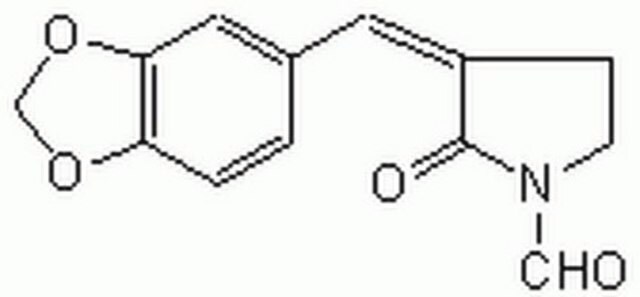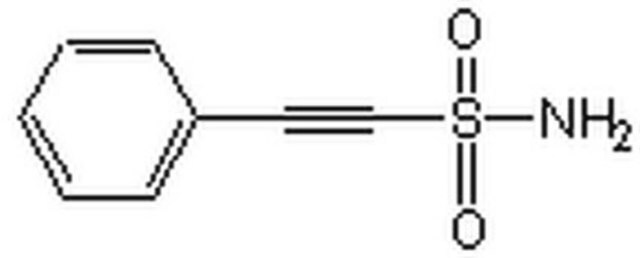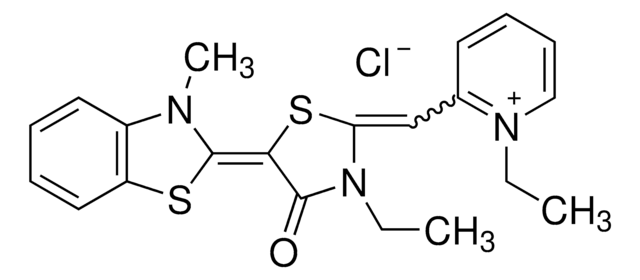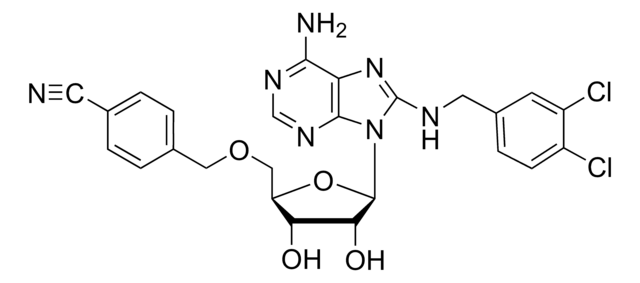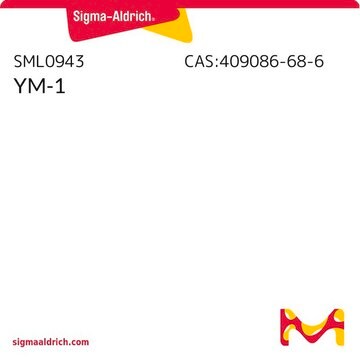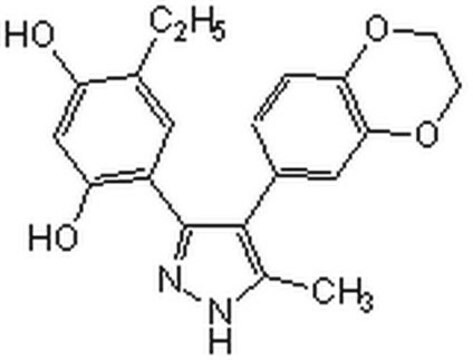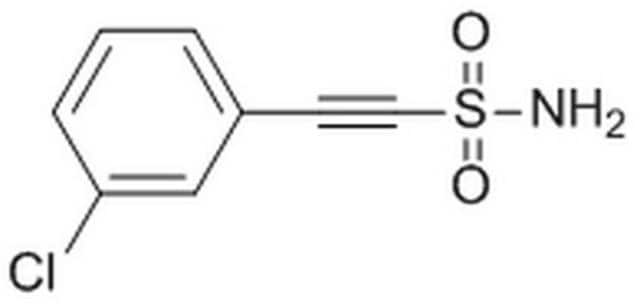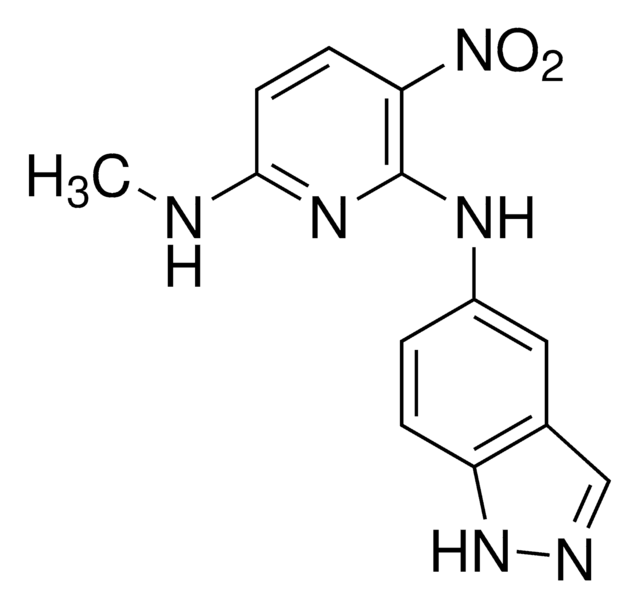5.31067
HSP70 Inhibitor, PES-Cl
Synonym(s):
HSP70 Inhibitor, PES-Cl, Heat Shock Protein 70 Inhibitor
Select a Size
About This Item
Recommended Products
assay
≥98% (HPLC)
Quality Level
form
powder
potency
2-5 μM IC50
manufacturer/tradename
Calbiochem®
storage condition
OK to freeze
protect from light
color
white
solubility
DMSO: 100 mg/mL
storage temp.
2-8°C
1 of 4
This Item | 5.00615 | 5.00511 | 385570 |
|---|---|---|---|
| form powder | form solid | form oil | form solid |
| Quality Level 100 | Quality Level 100 | Quality Level 100 | Quality Level 200 |
| manufacturer/tradename Calbiochem® | manufacturer/tradename Calbiochem® | manufacturer/tradename Calbiochem® | manufacturer/tradename Calbiochem® |
| storage temp. 2-8°C | storage temp. −20°C | storage temp. 2-8°C | storage temp. −20°C |
| storage condition OK to freeze, protect from light | storage condition OK to freeze, protect from light | storage condition OK to freeze, protect from light | storage condition OK to freeze, protect from light |
General description
Please note that the molecular weight for this compound is batch-specific due to variable water content.
Biochem/physiol Actions
HSP70
Packaging
Warning
Reconstitution
Other Notes
Budina-Kolomets, A. et al. 2013. Cancer Biol. Ther.15, 194.
Legal Information
Storage Class
11 - Combustible Solids
wgk_germany
WGK 3
flash_point_f
Not applicable
flash_point_c
Not applicable
Certificates of Analysis (COA)
Search for Certificates of Analysis (COA) by entering the products Lot/Batch Number. Lot and Batch Numbers can be found on a product’s label following the words ‘Lot’ or ‘Batch’.
Already Own This Product?
Find documentation for the products that you have recently purchased in the Document Library.
Customers Also Viewed
Our team of scientists has experience in all areas of research including Life Science, Material Science, Chemical Synthesis, Chromatography, Analytical and many others.
Contact Technical Service
